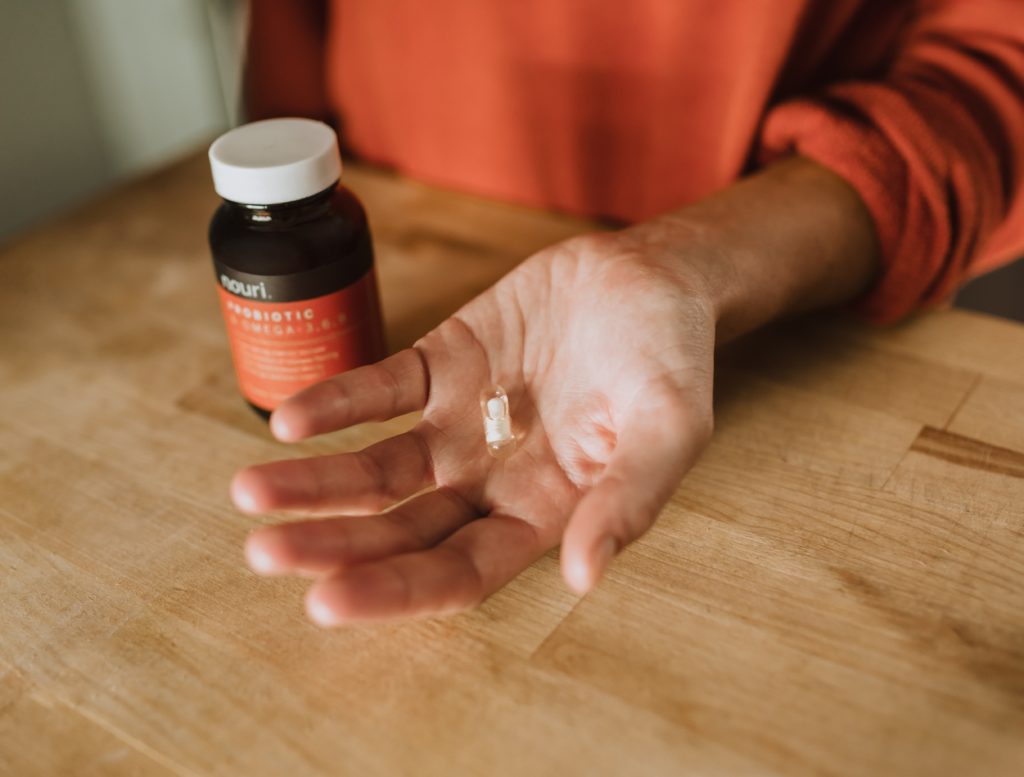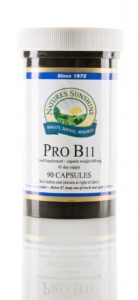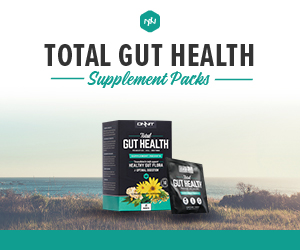After taking high dose probiotics for many months, new species of commensal bacteria grow that were not measurable at baseline but may not be species of bacteria that were present in the supplement.
These questions shine a light on one of the pitfalls of taking supplemental probiotics. In order for good bacteria that are consumed to actually stay in the large intestine (which is where most of our gut microbiome lives), there has to be room for these tiny microbes to reside.
The main way microbes establish themselves long-term in the colon is by attaching to the mucin – the mucus substance that forms the gut lining and acts as a barrier. Problems with your mucin is often referred to as ‘leaky gut’.
The issues are that, unless you have just taken a course of antibiotics, your mucin is already saturated with the microbiome, which can stop new species getting a stranglehold. What this means is that invariably the probiotics that arrive in the large intestine, as long as they were not dead when you took them, ultimately mostly pass through instead of establishing themselves.
However, interestingly, probiotics can, whilst flowing through, trigger population changes that may otherwise be more difficult. For example, you introduce species A and B but current residents X is reduced but population Y is increased.
Alternatively, the probiotics may also interact more directly with our immune system through the gut lining whilst they pass through the intestines.
Fundamentally, there’s still a heap of study that is yet to be done on probiotics. It’s obvious, that in many instances, they are very effective for a variety of reasons but from time to time the exact method can be indefinable and may not be strictly instinctive.
This matter of previously being occupied and current biota taking up a room does present clear evident conclusions. Firstly, you will likely most benefit from taking probiotics immediately after you’ve eradicated your current populations with antibiotics.
It’s important to note, however, that the cumulative effect of repeated use of antibiotics is pretty much unambiguously negative from the perspective of gut microbial communities, with each extra course instigating even vaster alterations that move the population further away from its ordinary preliminary state. Thus it would not be wise to administer antibiotics strictly in an attempt to free up some space in the intestines.
Another excellent time to take probiotics is whilst taking antibiotics. Clinical research has shown this can decrease the possibility of later C. Difficile and other infections. Studies by Dr Justin Sonnenburg at Stanford University have illustrated probiotics as possible placeholders that stop pathogens from acquiring a foothold during recovery.
It is possible that, with repeated probiotic use for over 6 months, some can get a base in the mucin and establish themselves, however to increase the chances of that occurring or having any kind of beneficial effects, it’s important to have a product that you’re sure is alive when it gets to you and also has a large enough quantity of bacterial cells that it can truly have an influence.
Pro B11 is a high potency, multi-strain, natural live bacteria supplement that provides almost 12 billion bacteria per serving. The eleven strains of bacteria in Pro B11 ensure you replenish your gut with a variety of beneficial flora. It contains Bifidobacterium strains longum, infantis and bifidum, which help to create B vitamins. Lactobacillus strains release unique enzymes, which help to break down larger milk proteins for absorption. The product is stored in refrigerated conditions immediately prior to shipping, and is formulated with an ‘overbuild’ of microbes to compensate for shipping time. The anticipated time of local shipping would not have any serious impact on the viable microbe count, and when you receive your product it will contain the number of organisms stated on the label.
In comparison, most contain closer to 10 billion or often even less. The viability of those bacteria by the time it leaves the shelf and/or warehouse and into your refrigerator may or may not be realistically zero.
There are loads of articles demonstrating the effectiveness of high dose probiotics both in humans and animals, examining their effect on a large variety of conditions extending from the more clear like antibiotic-induced diarrhea, as well as effects on insulin, atherosclerosis, food allergy, colitis, liver dysfunction, lipid profile, blood pressure and a lot more.
But to answer the question posted in the title, whether species in probiotics are able to establish themselves, anecdotally, Dr Rhonda Patrick reported on The Tim Ferriss Show that she measured both hers and her husband’s gut bacteria, both before and after taking high dose probiotics for many months and found that the probiotic lead to new species of commensal bacteria to grow that was not measurable at baseline and were not even species of bacteria that were present in the supplement she was taking.
It is likely that some of the bacteria that were in the supplement produced short-chain fatty acids (for example, lactate) that feed the other nearby probiotics that you have in tiny amounts in your intestine, which then increase in number. Therefore, this is how probiotics can make beneficial changes but when you look at the effects of the supplements, they may be not what you anticipated.
Read more… Probiotics and prebiotics – is it safe to use them to treat disease?
Should healthy people take probiotics supplements?
What supplements do scientists use, and why?
Good probiotics can be fairly expensive so I would recommend if you can not afford to continue to take daily doses, take them for a short period then use a maintenance dose every week and eat lots of fermented foods and dietary fibre to maintain your microbiome.
Whilst there is no reported risk factors from taking probiotics, always consult a doctor about any medical conditions you may have.
Enjoy!
Scott
PS. If you enjoyed this article, please Share it with your friends using the Social media link at the sides.




